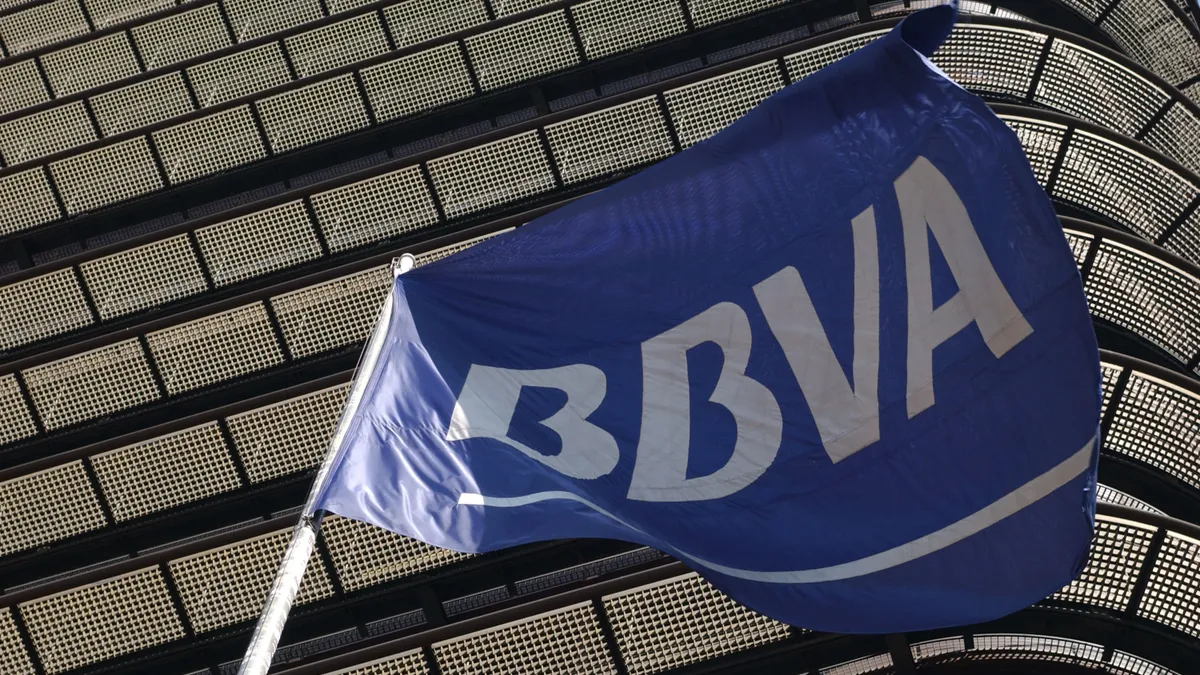Dive Brief:
- BBVA USA is closing subsidiary digital banks Simple and Azlo, according to email notifications customers received Thursday.
- The move comes less than two months after Spanish lender BBVA agreed to sell its U.S. retail arm to Pittsburgh-based PNC for $11.6 billion.
- Australian software developer Josh Reich's founding of Simple in 2009 could be seen as the birth of the challenger bank movement in the U.S.
Dive Insight:
The decision to close Simple leaves a second pioneer-sized hole in the challenger bank market in the span of a year. Fellow early neobank Moven last spring closed its consumer bank accounts in favor of a pivot toward a B2B model and recommended customers migrate their business to Varo, which later would become the first challenger to get a national banking charter from the Office of the Comptroller of the Currency (OCC).
"We're focused on the things that make the most sense for the company's future whether on a standalone basis or a potentially combined basis with PNC," BBVA said in a statement. "As a result, today we're accelerating some changes and stopping work on others, including the closing of Simple."
BBVA did not give a time frame for the wind-down, nor did it expound on the future of Simple's 220 employees.
"As we work through regulatory approval and integration plans, our longer-term staffing needs will become more clear," BBVA said in the statement, according to The Oregonian.
BBVA said it will migrate Simple customers to its mobile app. Those users will become PNC customers when the acquisition is completed, a move that's expected by mid-2021.
"There is no immediate impact to your accounts at Simple and nothing you need to do at this time," Simple said in its own notification to customers.
Reactions on social media ranged from severe to nostalgic. "What a terrible decision! Nothing I can do about it I suppose. Any suggestions for other banks to migrate to?" Twitter user Phillip Reece wrote.
"Watershed moment. The original challenger bank demonstrated the art of the possible," Peggy Mangot, a former Wells Fargo executive who's now a partner with PayPal Ventures, tweeted Thursday. "@simple showed us all what an elegant, transparent & intuitive consumer banking experience should look like."
Dismayed by what he saw as a needlessly complex U.S. banking system, Reich aimed to launch a "really boring, simple bank" on a mobile app with low fees and basic budgeting features. BankSimple, as it was then known, launched in 2009 in Brooklyn, and moved to Portland, Oregon, in 2011, rebranding itself Simple. Regulators wouldn't let Reich use the word "bank" in the name because Simple lacked a banking charter, American Banker reported.
BBVA bought Simple for $117 million in 2014. Simple shed 10% of its workforce, including several top executives, in 2017 in a move toward building better technology. Reich would leave the company the following year to start a family farm.
"I suspect PNC is prioritizing their existing online banking tech," Reich tweeted Thursday. "I'm saddened for the closure but happy for the journey and the lasting change that Simple has had on the global banking world. Customer experience matters. Great teams matter."
Azlo, a separate digital bank geared toward entrepreneurs, will also close.
"As founders and entrepreneurs ourselves, we know that there can be unexpected bumps on the entrepreneurial journey. We're sorry that we won't be alongside you," Cameron Peake, Azlo's founder and CEO, wrote to customers in an emailed statement.
Azlo launched a subscription-based banking service in September that bundles invoicing with automated budgeting for payroll and taxes.
"Transparency is incredibly important to me and the Azlo team, which is why we are sharing the news early," Peake wrote. "We want to reiterate that Azlo's service, and your account, is not going away today, and we will continue to support you during this period of transition."
BBVA said there will be no immediate changes to Azlo customers’ accounts or service and said it will keep customers informed with updates on a regular basis.
"We anticipate customers will need to transition funds to an alternate banking service at some point in the future," the bank said in a statement.














